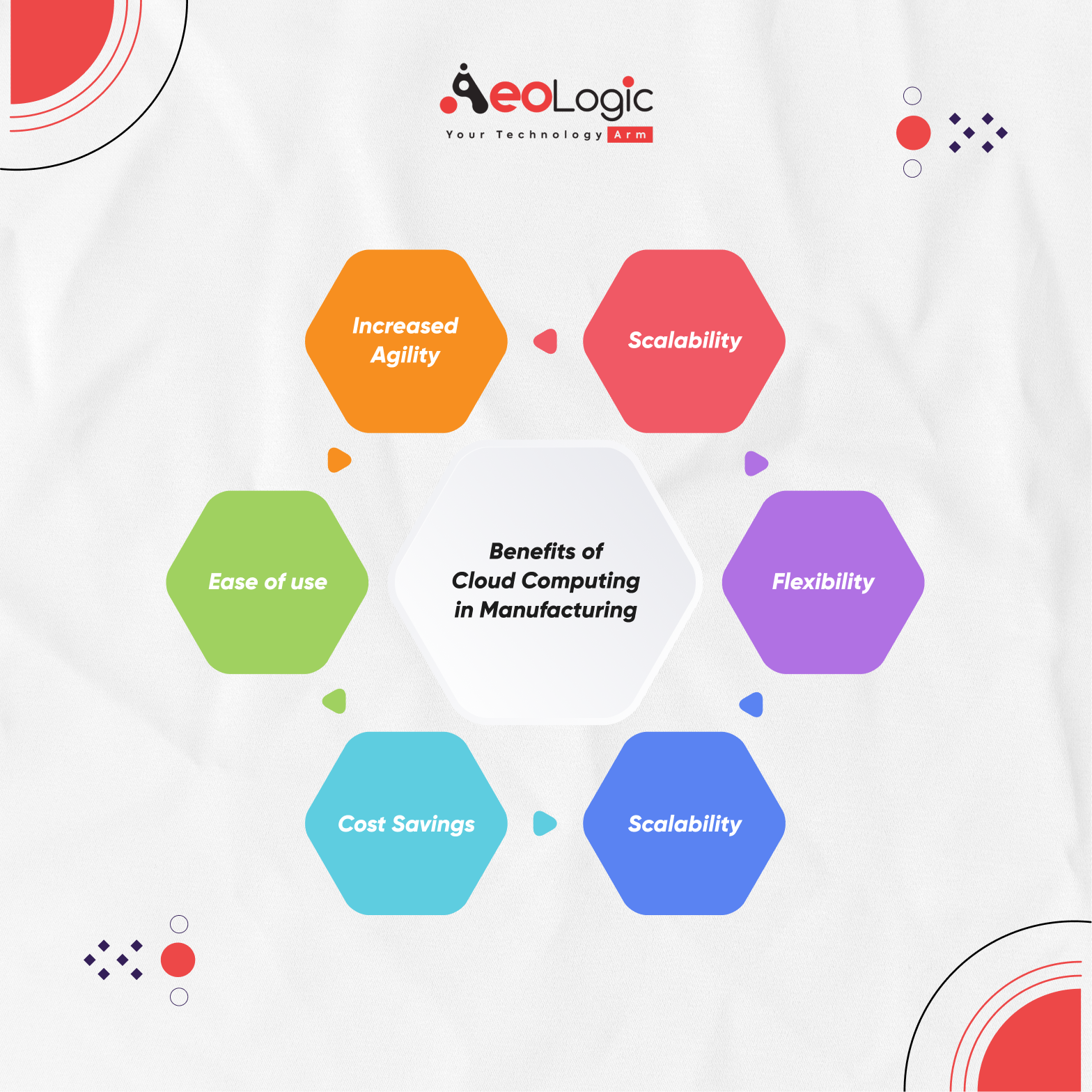Cloud computing has given engineers and IT professionals the tools they need to make everything from software to networks more agile. But what about when it comes to manufacturing? Cloud-native applications have a number of advantages – including lower cost, faster time to market, and increased scalability – that can lead to an improved bottom line for manufacturers. Find out more in this blog on the benefits of cloud-native applications in manufacturing!
Let’s begin!
What is Cloud Native?
Cloud-Native is a new way of developing and deploying applications. There has been tremendous growth in the adoption of Digital Transformation which has led to an increase in the number of organizations shifting towards Cloud-native technologies.
Cloud-native applications are designed to run in the cloud and take advantage of the cloud’s benefits. They are built using microservices—a method of developing software applications as a suite of independently deployable services—and they are deployed in containers, which are isolated virtual environments.
Microservices and containers allow for greater flexibility and scalability than traditional monolithic applications. They also make it possible to update individual components of an application without affecting the rest of the app. This makes cloud-native apps more resilient to change and easier to manage.
Also Read: Top Benefits of Cloud Computing Technology for Ecommerce Stores
What are the Benefits of Cloud Computing in Manufacturing?

Cloud-native applications can provide several benefits for manufacturing organizations, including increased agility, scalability, and flexibility. In addition, cloud-native apps can help to reduce IT costs and improve security.
Organizations that are looking to adopt cloud-native applications in their manufacturing operations should consider the following benefits:
Increased Agility
Cloud-native apps can help manufacturing organizations to be more agile in their operations. By using cloud resources, manufacturers can quickly scale up or down their production as needed. This can help to save time and money when responding to changes in demand.
Scalability
To stay competitive with your manufacturing business, you need to use cloud-native software. As your business expands, you can easily add more users and resources without having to re-architect your entire system.
Ease of use
Cloud-native applications are easier to use and maintain than traditional ones, making them an ideal fit for companies that want to optimize their efficiency without sacrificing quality or security features.
Flexibility
Cloud-native apps offer greater flexibility than traditional on-premises applications. With cloud-based apps, you can quickly change your configuration or add new features without having to deploy new hardware or make other major changes to your infrastructure.
Cost Savings
One of the biggest advantages of moving to the cloud is the potential for cost savings. With on-premises infrastructure, organizations have to make a large upfront investment in hardware and software. They also need to factor in the costs of maintenance and support. In contrast, with cloud-based solutions, organizations only pay for what they use. There are no upfront costs and no need to invest in an extra capacity that may never be used. This can result in significant savings for manufacturing organizations.
Better Performance and Scalability
Cloud-native applications deliver better performance and scalability than traditional enterprise applications, because they are built to work with all types of hardware, operating systems (e.g. Linux), and virtualization platforms (e.g., Docker). This means that you will not have to worry about upgrading your infrastructure or software platform as often as you would with other types of software solutions.
Reduced Development Time
Because cloud-native applications are built using open source technologies such as Java, Python, NodeJS/NPM, etc., they can be deployed quickly without requiring extensive knowledge of programming languages or frameworks such as Spring Boot or Spring MVC. Hence, this means that you will not have to spend significant time learning how these tools work before being able to start developing your own applications using them!
The cloud has become an essential part of doing business for many organizations across a variety of industries. And for good reason – the cloud can offer significant benefits in terms of cost savings, flexibility, and scalability. One industry that could really benefit from using the cloud is manufacturing.
Cloud Computing Challenges and Solutions
The cloud has been a game-changer for the manufacturing industry. By moving data and applications to the cloud, manufacturers have been able to improve collaboration, increase efficiency, and reduce costs.
However, the transition to the cloud has not been without its challenges. One of the biggest challenges has been security. When data and applications are stored in the cloud, they are more vulnerable to cyberattacks. Manufacturers have had to invest in robust security measures to protect their data and applications.
Another challenge has been finding the right cloud provider. With so many providers to choose from, it can be difficult to find one that meets all of a manufacturer’s needs. Manufacturers need to carefully evaluate their options and select a provider that can offer the right mix of features and services.
Despite these challenges, the benefits of cloud-native applications in manufacturing are clear. By leveraging the power of the cloud, manufacturers can gain a competitive edge and improve their bottom line.
Also Read: How is the Cloud Computing Shaping Healthcare Industry?
Why should Companies Choose a Cloud-Native App Strategy?
If you’re looking to improve your company’s agility in the face of a rapidly changing market, a cloud-native application strategy is going to help you out. Cloud-native applications represent the future of software development and are ideal for manufacturing.
Here’s why:
- Cloud-native apps are built for speed and scale. They can be deployed and scaled quickly, ensuring that your business is always up to date with the latest technology.
- They have fewer moving parts than traditional applications, so they’re easier to maintain and update as needed.
- Cloud-native applications are secure by design—they use encryption, security checkpoints, etc., making them more resistant to attacks from hackers or malware infections than traditional apps might be.
Why Use a Cloud-Native Platform in Manufacturing?
Hence, in the world of manufacturing, there are many reasons to use a cloud-native platform.
First of all, it’s important to think about how much money you can save by using these platforms. By utilizing this Cloud-Native technology, you will be able to reduce costs and improve efficiency in your manufacturing processes. Hence, this means that you are able to focus on other areas of your business rather than just the technology itself.
Another reason why it is important to use cloud-native platforms in manufacturing is that they allow for a more flexible environment. This means that you are able to adapt your system as needed without having to worry about how it will affect your other systems or processes. It also makes it easier for employees who work remotely since they do not need to be physically present at all times in order to perform their duties properly.
Finally, another benefit of using cloud-native applications in manufacturing is that they can improve accuracy when it comes time for data collection and analysis later on down the road after production has already begun on an ongoing basis at its own pace without any interruption whatsoever since everything happens automatically without any human intervention required at all times on an ongoing process.
Also Read: How Businesses Can Innovate in Retail with Latest Technology
Conclusion
Cloud-native applications can offer a number of benefits for manufacturing companies, including increased agility, better scalability, and reduced costs. If you’re considering migrating your manufacturing operations to the cloud, be sure to weigh the pros and cons carefully to see if it’s the right fit for your business. Thanks for reading!
When it comes to changing your manufacturing business, cloud-native apps are one of the best ways. It can help you save money, increase productivity, and improve customer experiences. But how do you know which cloud-native apps will be right for your business? Don’t worry about that We are here to help you!
As a cloud-native app developer, Aeologic Technologies would be happy to hear from you.
FAQ’s
What is an example of a cloud-native application?
One example of a cloud-native application is a chatbot. Chatbots are really popular and they allow you to engage with customers in different ways. You can use a chatbot to help customers or even do research.
What is important in the cloud-native approach?
The key to success for cloud-native applications is to use a framework. The cloud-native framework must be compatible with tools and languages used by developers, and it must also be easy to use.










